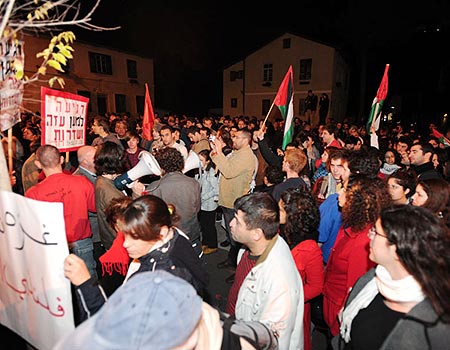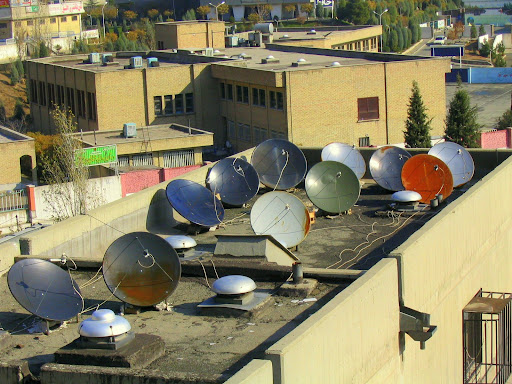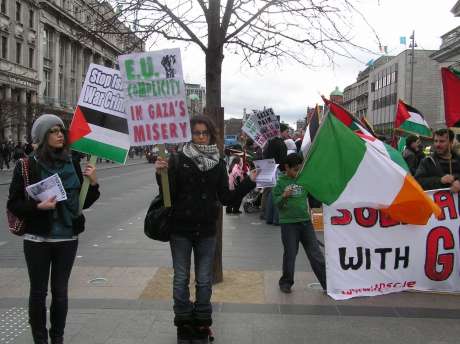After about 70 years in existence, the BBC Persian Service is
naturally a household name in Iran. In a move calculated to expand its
reach in the Islamic Republic, BBC Persian has ventured into
television. Launch is just weeks away.
Though satellite television is illegal in Iran, more than half its
urban dwellers have access to satellite television by some estimates.
Over the past few years, the number of Persian-language satellite
stations has continued to grow. At last count, there were about 50
stations, most of which are based in Los Angeles, home to the largest
Iranian expat community.
BBC Persian Television will be a much welcome addition. The quality of
Persian-language satellite programs are generally very poor. Still
they have a large audience in Iran because the younger generation
tunes in for Western music programs and to hear the latest Iranian pop
music that is illegal in Iran. Other than music, much of the political
or even social programming offered by these stations do not appear to
be taken very seriously by many people, especially the youth. Still,
from time to time, officials enforce the ban and take down people's
satellite dishes and haul the owners to court. Just as authorities
filter Websites—including the BBC's—they scramble programs and it will
be interesting to see how the BBC deals with that.

The launch of BBC Persian Television should have a major effect on the
state of television culture in Iran in general. In the absence of
independent television on the one hand, and amateur-level programming
from the stations abroad on the other, many will refer to the BBC for
news and other information. Because the bar is so low, the BBC will
not have to work hard to look good. But I hope the powers that be will
make use of their basket full of resources to put out a product that
will live up the BBC brand name. I hope they just don't attempt to get
by, because they know they can get away with it. As noted, they don't
have much competition, and not many outside of the BBC Persian Service
division speak Persian to gauge the quality of their programs.
The view from the outset isn't promising. Stories and rumors
circulating around for the past few months have called into question
its recruiting and hiring methods and decisions, the background and
experience of those they have chosen to fill the top TV posts, even
the neutrality of its politics. I certainly hope I am wrong in seeing
it that way and I hope that my own experience isn't a harbinger of
things to come.
I wrote a
critique of a
training video the BBC put out recently. It
was published on the
Radio Zamaneh Website. I got quite an earful
about it. This article was the most-read on the site. There were more
than 100 hits just from the BBC alone. Among the 30 comments, and
emails to me, many came out in the defense of the organization that
signs their checks. I was criticized for making a judgment about the
quality of BBC TV so early on in the process, for being too harsh and
bitter in tone, and even accused of trying to settle a personal
vendetta...

Still I don't know how that can be the case. First of all, in order to
make sure I hadn't written anything that could be construed as
offensive to my former colleagues, I reviewed my final draft a few
times—to little avail apparently.
Secondly, I was writing about the technical aspects of a video—a training video at that.
Be it the latest Ridley Scott film, or a BBC video, I am a critic. That's what I
do. I have been writing about media and cinema for 18 years. There
were at least 11 obvious flaws in the short nine-minute span of this
clip. Given all their resources, I thought it fell short. One expects
a lot more from the BBC, one that sets out to train others in the
profession.
And this was just my point of view on the technical aspect of it. What
would happen if I started to comment on the content of their work?
Citing copyright infringement, the BBC contacted Radio Zamaneh and had
them take down seven screenshots I had used from the training video to
illustrate my point.
In the time I worked there, this had never happened.
I asked friends at the BBC World Service and they were more
or less of the opinion that I had not violated copyright law. I am
still waiting to hear back from their legal department.
It would be usefule if we know that more than 60 procent of people in large cities using satelite TV chanales and most frequnetly Persian channals, then notice that why analysing, critc and study on this channels seems so importanat for media researchers to better understanding of media policy and contents of these channels. bloggers' who dependent to some governmental organization are accusing to have the main rule to monitor, investigating and spying against the majority of Iranian bloggers who are secular, not supporting IR’s propaganda, or atheists, feminists and leftists.
bloggers' who dependent to some governmental organization are accusing to have the main rule to monitor, investigating and spying against the majority of Iranian bloggers who are secular, not supporting IR’s propaganda, or atheists, feminists and leftists.


















